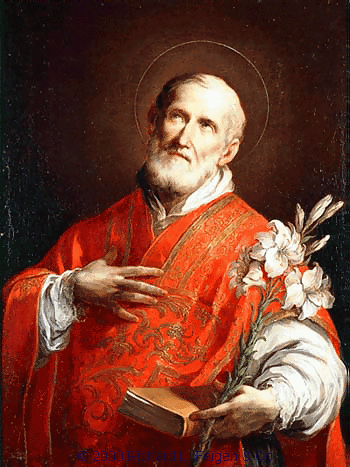Here's some info on today's feast.
The Feast of the Visitation of the Blessed Virgin Mary to Elizabeth is medieval in origin. It started off as a Franciscan devotion and in 1263 Saint Bonaventure recommended it to the Franciscans as a general observance. Him being the Heid Bummer, they agreed! The Franciscan Breviary spread it far and wide. In 1389 the Pope put it in the Roman Calendar, date 2nd July. It stayed there, the day after the end of the octave of the feast of the Birth of St John the Baptist, who was still in his mother's womb at the time of the Visitation, until 1969 when Pope Paul VI moved it to 31 May, "between the Annunciation of the Lord (25 March) and the Nativity of St John the Baptist (24 June), so that it would harmonize better with the Gospel story." Roman Catholics who use a pre-1969 calendar and Anglicans who use the 1662 English BCP celebrate the feast on 2 July - as does the entire Catholic (and Lutheran) Church of Germany, using the post-1969 calendar of Pope Paul VI but with the variations permitted in the German Regional Calendar.
The celebration of this event in the Orthodox Church is more recent (19th century). It was down to Archimandrite Antonin Kapustin, head of the Russian Orthodox Mission in Jerusalem. The Gorneye Convent in Jerusalem, built on the traditional site of the Meeting of the Virgin Mary) and St. Elizabeth, celebrates this Feast on 30 March. (In the Julian Calendar, 30 March corresponds, until 2099, to the Gregorian Calendar date of 12 April.) . The celebration of the Feast of the Visitation has not yet been accepted by all Orthodox jurisdictions.
Mighty God,
by whose grace Elizabeth rejoiced with Mary
and greeted her as the mother of the Lord:
look with favour on your lowly servants
that, with Mary, we may magnify your holy name
and rejoice to acclaim her Son our Saviour,
who is alive and reigns with you,
in the unity of the Holy Spirit,
one God, now and for ever. Amen
by whose grace Elizabeth rejoiced with Mary
and greeted her as the mother of the Lord:
look with favour on your lowly servants
that, with Mary, we may magnify your holy name
and rejoice to acclaim her Son our Saviour,
who is alive and reigns with you,
in the unity of the Holy Spirit,
one God, now and for ever. Amen

